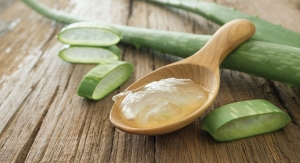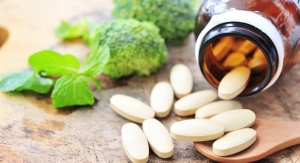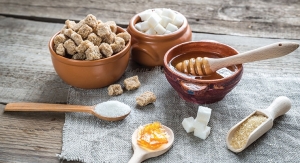Michael McBurney, VP Science, Communications & Advocacy, DSM Nutritional Products04.24.15
Journalism, get your act together! Once again, print and televised media (Sunday Express, The Guardian, Daily Mail, CBS News) are disseminating a story which raises many questions—only a few weeks since the Columbia University Graduate School of Journalism investigation led Rolling Stone to apologize for failing to meet journalistic standards. What are today’s sordid details?
The American Association for Cancer Research held its annual meeting in Philadelphia, Apr 18-22. Dr Tim Byers, University of Colorado Cancer Centre is reported to have presented evidence, after studying thousands of patients for 10 years, that some people get more cancer while on vitamins. My problem is the apparent lack of peer-reviewed evidence with hazard ratios (HR) or odds ratios (OR), or even an abstract to partially substantiate the claim.
A session titled “Dietary Supplements and Cancer Risk and Prognosis” was held April 20. Dr. Tim E Byers is listed as an invited speaker but there is no abstract for his presentation. The University of Colorado Cancer Center has promoted his research but an abstract, peer-reviewed paper, or supplemental data cannot be found. The question is, did journalists ask to see the scientific evidence? Certainly, I cannot make an evaluation without some scientific evidence beyond expert opinion.
This is some of the scientifically published literature on multivitamin/mineral supplementation and cancer risk. A systematic Review of 4 good-quality randomized controlled Trials (RCTs) (n=28,607) and one good-quality cohort study (n=72,337) found no evidence of harm with vitamin/mineral supplementation. In fact, daily multivitamin supplementation decreased risk of total cancer by 8% in the Physicians Health Study II (n=14,641). Breast cancer mortality was 30% lower in women using multivitamin/mineral supplements vs non-users (n=7,728).
The Heidelberg cohort of the European Prospective Investigation into Cancer and Nutrition (EPIC-Heidelberg) (n=23,943) did not find a statistically significant effect of vitamin/mineral supplementation on cancer risk (beneficial or harmful). It did find baseline users of antioxidant supplements had a 48% reduced risk of cancer mortality. Because of a “sick-user effect,” researchers are advised to be cautious that bias isn’t introduced with the conversion of “sick-users” non-users to users-of-supplements during research studies.
Scientists are expected to be diligent. When conducting vitamin/mineral supplementation studies, it is reasonable to criticize reports that rely upon randomization (supplement vs placebo) without consideration of vitamin status, e.g. serum α-tocopherol concentrations, of the volunteers.
Failures in journalism are unacceptable. They mislead and erode public trust. The media has the freedom to conduct interviews and verify sources. Ask scientists and institutions if the data has undergone peer review. Interview experts who have reviewed the study and/or data.
This article first appeared at TalkingNutrition.dsm.com on April 21.
Main Citation
Oh wait, there isn’t one!
Other Citations
Fortmann SP, Burda BU, Senger CA, Lin JS, Beil TL, O’Connor E, Whitlock EP. et al. Vitamin, Mineral, and Multivitamin Supplements for the Primary Prevention of Cardiovascular Disease and Cancer: A Systematic Evidence Review of the US Preventive Services Task Force. Rockville, MD. 2013 Agency for Healthcare Research and Quality (US) Report No 14-051199-EF-1
Gaziano JM, Sesson HD, Christen WG, Bubes V, Smith JP, MacFadyen J, Schvartz M, Manson JE, Glynn RJ, Buring JE. Multivitamins in the prevention of cancer in men: The Physicians’ Health Study II Randomized Controlled Trial. 2012 JAMA doi: 10.1001/jama.2012.14641
Wassertheil-Smoller S, McGinn AP, Budrys N, Chiebowski HR, Ho GY, Johnson KC, Lane DS, Newhouser ML, Saquib J, Shikany JM, Song Y, Thomson C. Multivitamin and mineral use and breast cancer mortality in older women with invasive breast cancer in the women’s health initiative. 2013 Breast Cancer Res Treat doi: 10.1007/s10549-013-2712-x
Li K, Kaaks R, Linseisen J, Rohmann S. Vitamin/mineral supplementation and cancer, cardiovascular, and all-cause mortality in a German prospective cohort (EPIC-Heidelberg). 2012 Eur J Nutr doi: 10.1007/s00394-011-0224-1
The American Association for Cancer Research held its annual meeting in Philadelphia, Apr 18-22. Dr Tim Byers, University of Colorado Cancer Centre is reported to have presented evidence, after studying thousands of patients for 10 years, that some people get more cancer while on vitamins. My problem is the apparent lack of peer-reviewed evidence with hazard ratios (HR) or odds ratios (OR), or even an abstract to partially substantiate the claim.
A session titled “Dietary Supplements and Cancer Risk and Prognosis” was held April 20. Dr. Tim E Byers is listed as an invited speaker but there is no abstract for his presentation. The University of Colorado Cancer Center has promoted his research but an abstract, peer-reviewed paper, or supplemental data cannot be found. The question is, did journalists ask to see the scientific evidence? Certainly, I cannot make an evaluation without some scientific evidence beyond expert opinion.
This is some of the scientifically published literature on multivitamin/mineral supplementation and cancer risk. A systematic Review of 4 good-quality randomized controlled Trials (RCTs) (n=28,607) and one good-quality cohort study (n=72,337) found no evidence of harm with vitamin/mineral supplementation. In fact, daily multivitamin supplementation decreased risk of total cancer by 8% in the Physicians Health Study II (n=14,641). Breast cancer mortality was 30% lower in women using multivitamin/mineral supplements vs non-users (n=7,728).
The Heidelberg cohort of the European Prospective Investigation into Cancer and Nutrition (EPIC-Heidelberg) (n=23,943) did not find a statistically significant effect of vitamin/mineral supplementation on cancer risk (beneficial or harmful). It did find baseline users of antioxidant supplements had a 48% reduced risk of cancer mortality. Because of a “sick-user effect,” researchers are advised to be cautious that bias isn’t introduced with the conversion of “sick-users” non-users to users-of-supplements during research studies.
Scientists are expected to be diligent. When conducting vitamin/mineral supplementation studies, it is reasonable to criticize reports that rely upon randomization (supplement vs placebo) without consideration of vitamin status, e.g. serum α-tocopherol concentrations, of the volunteers.
Failures in journalism are unacceptable. They mislead and erode public trust. The media has the freedom to conduct interviews and verify sources. Ask scientists and institutions if the data has undergone peer review. Interview experts who have reviewed the study and/or data.
This article first appeared at TalkingNutrition.dsm.com on April 21.
Main Citation
Oh wait, there isn’t one!
Other Citations
Fortmann SP, Burda BU, Senger CA, Lin JS, Beil TL, O’Connor E, Whitlock EP. et al. Vitamin, Mineral, and Multivitamin Supplements for the Primary Prevention of Cardiovascular Disease and Cancer: A Systematic Evidence Review of the US Preventive Services Task Force. Rockville, MD. 2013 Agency for Healthcare Research and Quality (US) Report No 14-051199-EF-1
Gaziano JM, Sesson HD, Christen WG, Bubes V, Smith JP, MacFadyen J, Schvartz M, Manson JE, Glynn RJ, Buring JE. Multivitamins in the prevention of cancer in men: The Physicians’ Health Study II Randomized Controlled Trial. 2012 JAMA doi: 10.1001/jama.2012.14641
Wassertheil-Smoller S, McGinn AP, Budrys N, Chiebowski HR, Ho GY, Johnson KC, Lane DS, Newhouser ML, Saquib J, Shikany JM, Song Y, Thomson C. Multivitamin and mineral use and breast cancer mortality in older women with invasive breast cancer in the women’s health initiative. 2013 Breast Cancer Res Treat doi: 10.1007/s10549-013-2712-x
Li K, Kaaks R, Linseisen J, Rohmann S. Vitamin/mineral supplementation and cancer, cardiovascular, and all-cause mortality in a German prospective cohort (EPIC-Heidelberg). 2012 Eur J Nutr doi: 10.1007/s00394-011-0224-1



















